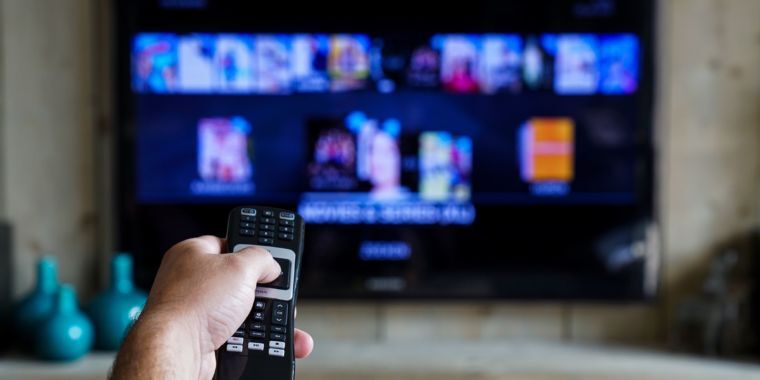Too bad that all customers had already went back to piracy
More like 0.1%
The people you see here on Lemmy are the minority IRL.
Even to most of my Redditor friends, I’ve had to explain to them what Lemmy even is, what the fediverse even is
I absolutely think piracy eclipses the Fediverse in popularity.
Most people may not be on Lemmy, but don’t forget that there are far more poorer people than those who are well-off. They don’t endure price hikes and splitting services as much as others might.
The willingness of people to assume that everyone else has the same niche passions as they do never ceases to make me laugh.
but we’re saving money, are we not?
my NAS and usenet indexer have already paid for themselves
I’m succumbing to my data hoarder desires, NAS upgrade parts littered around me. Let the TB flow.
let me just quickly plug in this one SFP+ … and now I’m studying for my CCNA
deleted by creator
I’ve been too lazy to switch back to pirating so far but as soon as I get motivated to set it all up Netflix is first on the chopping block.
I set aside a weekend for it and used open media vault. Highly recommended.
At this point just sail the high seas until it gets much cheaper and re-allowed to share an account again.
Not worth the money and hassle for that crap.
It would be if it was licensed more like music. You pick the service that has the features you want, and they show whatever movies or series you want.
The main reason piracy is getting more prevalent now is because you have to subscribe to a dozen services to watch everything, so it’s just easier to download a torrent than it is to juggle subscriptions.
Don’t forget all the other little subscription services that have popped up.
Seems like I can’t go a day without a few things wanting my cash monthly.
I don’t currently sail the seas, but it’s part of my next project, a cluster of pis or similar… I’ve got a hell of a server, and got it for free, but it just kills our electric bills and produces a lot of heat that the AC has to combat thus even higher electric bills. . Hoping a cluster of pis will be sufficient for what I want, but I’ve done no real research past proof of concept at this point.
Advice or resources welcome lol.
Learning the hard way that VOD is not cheap, unless you’re Netflix who installs smaller servers inside many ISP and cell carrier offices to reduce bandwidth cost
Completely agree, I think one great thing that Netflix has done over the other competitors is that they’re a tech company at heart, not a content company.
As such, they thought about how to optimize cost and quality of delivery much more than HBO (and others) did/do. This is both a good thing for their bottom line, but also for consumers. I find Netflix loads significantly faster than other competitors, even Prime video which has the backbone of AWS behind it!
Sure, at the end of the day the most compelling content wins, but after that, quality of service is super important.
Netflix is over engineered to a crazy extent, which makes it an incredibly good user experience. They’re often pointed to as an example of resiliency and reliability in the tech circles I’m in, and it proves very true. There’s almost no cases where I can think of Netflix being down, let alone down because of issues with their own platform.
Being a bit pedantic, but if it leads to the desired UX I wouldn’t call it over-engineering
I can honestly say all of the big services have been reliable and of similar quality. Max, Peacock, Hulu, Prime, Discovery, Netflix, AppleTV.
Never a problem. The one exception was Game of Thrones era HBO.
That’s surprising to hear. Netflix has always been a step above, Hulu is decently behind. The rest are pretty rough from my perspective, but slowly getting better over time. Amazon was definitely miserable to use for a long time and I don’t think had anything but a basic “fast-forward/rewind” functionality with no thumbnails for quite a while.
The Peacock app and streaming has been hit or miss on plenty of occasions.
I think the worse is the Disney app that makes it difficult to just replay a movie that’s already been watched. It likes to resume at the end of the credits of the episode you want to watch rather than realize I want to watch the whole episode not just the final 10 seconds of credits. Or that switching between an episode when watching something from your “Previously Watched” list means finding the series on an entirely separate list in the UI.
Amazon video is fucking awful. I don’t know how anyone could defend their player. It’s slow, clunky, missing features, and hard to navigate. Their libraries are pretty bad too. And load times are significantly worse than Netflix. It’s like twitch vs YouTube.
Disney was somewhere between the two in my experience. But lots of problems trying to re-watch things or find my place… It always seemed to recommend the wrong episode of the show I wanted etc. It just always felt it had a small hurdle, whereas Netflix is always one click away from what I’m looking for.
And then there’s the other issue: experiences vary wildly depending on device the service is being played from. Playing something on a Roku vs AppleTV vs even a PS5 will give you different experiences. Even through Netflix, who is probably at the top for UX/UI, some features of the software are missing device by device, UI differences, etc.
One thing that would breathe new life into old content would be curation. On Plex I love making playlists of shows. I’ve got 90’s sci fi, sitcoms, documentaries, and even a reasonable facsimile of [adult swim]. I don’t think it would be too hard to add this to a streaming service.
Seriously, just let us make our own “channels”. I want to shuffle through different shows for my background audio, not just 1.
Whichever streaming service gets that and some decent content will have my full attention
When distribution was solely through radio waves owned by networks it made sense to license to a network. Now you can sell directly to consumers. Why do producers go through mediaries and bundle shows? I don’t get it. If they want to make money from Band of Brothers, they could put it on their Web site at a reasonable price and charge consumers directly.
Because then you’re also taking on the administration of content delivery and payment for the same. That all takes time and money to spin up and market - which a bunch of networks have done, making their own streaming platforms. I’m willing to bet that a good number of those “second tier” direct to consumer streaming platforms aren’t making as much money as the networks had hoped, while also adding a lot of administrative overhead. So they’re moving back to just licensing the content to Netflix and Hulu and Amazon.
deleted by creator
As far as I know, series are still released on DVD/Blue Ray. Are you expecting for each production company to have their own content delivery network, maintain their own servers and everything else needed to run a video streaming plataform?
… Yes, that’s what I expect. Do you think these are mom and pop shops?
Digital purchases still exist for a ton of movies and shows.
The issue is that most people don’t actually want to pay a non-trivial amount of money to buy a season of a show that they’ll watch one time.
This is the best summary I could come up with:
Some of Netflix’s competitors are reversing a streaming war tactic by licensing their old TV shows and movies to the streamer—boosting its programming offerings but also potentially squeezing its profit margins, analysts say.
But after Walt Disney, NBCUniversal, Paramount and the then-Time Warner launched their own streaming services, they pulled many of their shows from Netflix to avoid feeding a company that had grown into an arch-competitor.
This summer, Warner Bros Discovery’s HBO network began licensing a handful of older shows to Netflix, including Insecure, Six Feet Under, Ballers, and Band of Brothers.
Analysts at Morgan Stanley said the return of licensing deals was a “long-term positive” for Netflix and would “pad” its lead over competitors in streaming.
Netflix will report results on Wednesday, with investors expected to focus on whether it plans to increase subscription prices and signs of progress on its new advertising tier.
The return of licensing deals has coincided with strikes in Hollywood, which halted production of new shows and are expected to delay TV and movie releases well into next year.
The original article contains 585 words, the summary contains 176 words. Saved 70%. I’m a bot and I’m open source!
Basically, HBO purged programming.









